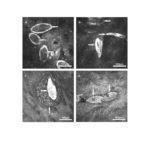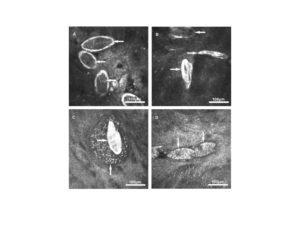Type I interferons (IFN) have been traditionally associated with innate immune defences against viruses and bacteria which ultimately result in Th1/17-type adaptive immune responses. Although a Type I IFN signature has been detected in immune cells responding to pathogens other than viruses and bacteria, the significance of these observations is not fully understood. Recently, Webb and co-authors showed that Type I IFN signaling is also a critical component of the Th2-type immune response against helminth Schistosoma mansoni (Sm) eggs.
Sm is the cause of intestinal schistosomiasis, a chronic disease prevalent in many tropical regions. Adult Sm parasitize blood vessels of the large intestine, where for a long time they can dwell and produce eggs remaining unnoticed by the immune system. The Sm eggs induce inflammation in the gut mucosa and surrounding organs, which ultimately results in organ damage.
In 2004, Trottein and colleagues found that Sm eggs induce a Type I IFN signature in dendritic cells, the sentinels of the immune system. More than a decade later, Webb et al. explored this finding further using murine bone marrow-derived dendritic cells, grown in the presence of Flt3 ligand to represent the three major sub-types of DCs resembling the in vivo DC repertoire.
Web and co-authors found that upon exposure to Sm eggs/egg-derived compounds, DCs produced ample quantities of different TI IFNs. Upon closer investigation, it was found that IFNα a major type I IFN, was mainly produced by class 2 conventional DCs, but not plasmacytoid DC- the main source of IFNα in antiviral responses. The researchers further performed adoptive transfer experiments to confirm that Sm-activated DCs migrated to mouse draining lymph nodes, where they promoted Th2 polarization by inducing production of Th2-associated cytokines. Through a series of subsequent experiments, Webb and co-authors established that effective DC migration triggered by Sm eggs was also dependent on functional IFNα receptor signaling. Finally, by injecting Sm egg antigens directly into a mouse, the authors demonstrated that exposure to Sm eggs induces up-regulation of IFN-stimulated gene expression in DCs across different tissues in vivo.
In summary, the study by Webb et al. elucidates for the first time the role of Type I IFN signaling in helminth egg-driven Th2-type immunity and highlights the context-dependent nature of Type I IFN signaling triggered by different pathogens. On a broader scale, these findings have important implications for ongoing studies on anti-helminth vaccines and research focusing on co-infections of helminths and other pathogens, such as HIV.
Journal article: Webb et al., 2017. Type I interferon is required for T helper (Th) 2 induction by dendritic cells. EMBO J
Article by Sergey Yegorov (PhD Student, University of Toronto)

